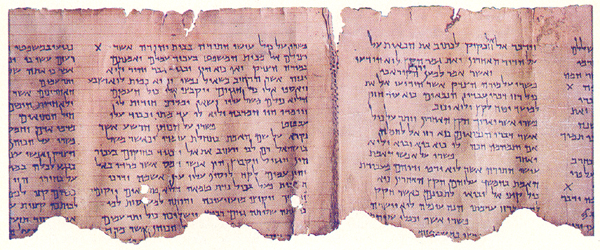Image Details

David Harris
The Habakkuk Pesher, or commentary, from Qumran. This late first-century B.C.E. Dead Sea Scroll consists of sentence-by-sentence quotations from the seventh-century B.C.E. biblical prophet, together with an interpretation that applied his words to contemporary times. For example, Habakkuk’s pronouncements on the Chaldeans were understood by the Qumran community to refer to the Kittim of their own day. (“Kittim” is a code word for either the Seleucid Greeks in Syria, the Ptolemaic Greeks in Egypt or the Romans.)
As David Noel Freedman explains in the accompanying interview, the practice of interpreting prophetic biblical passages in light of current events was not restricted to the people who composed the Dead Sea Scrolls. Early Christians interpreted the Bible in the same way. They understood the Hebrew Bible as predicting the coming of Jesus. Jews, too, in the past read the Bible for keys to understanding what was happening in the world at large, but for the most part abandoned this approach in the wake of the failed Bar-Kokhba Revolt against Rome (second century C.E.). That bitter defeat soured them on using the Bible to speculate on contemporary events—and by that time they did not want to do what Christians were doing.
